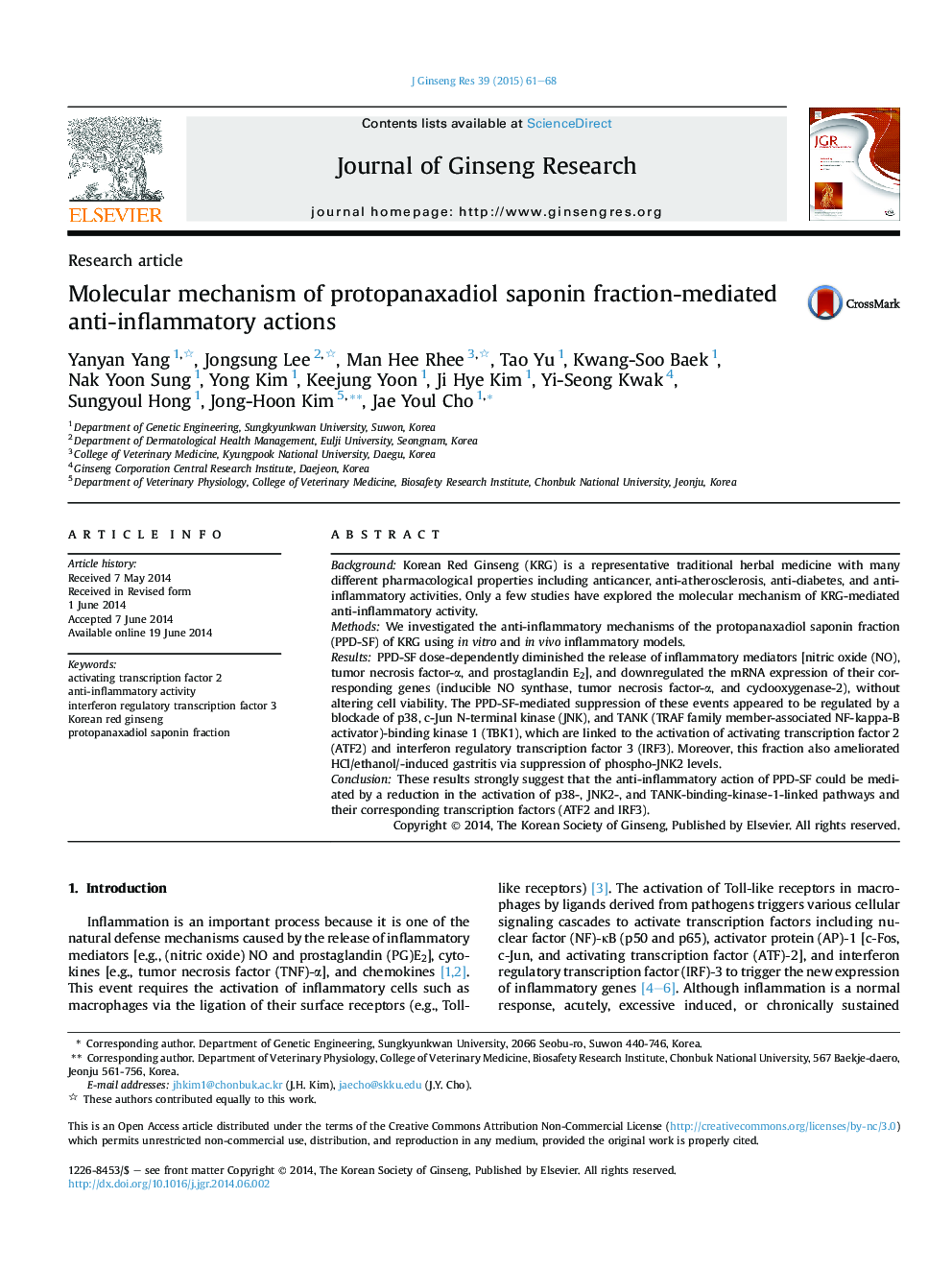| Article ID | Journal | Published Year | Pages | File Type |
|---|---|---|---|---|
| 3099329 | Journal of Ginseng Research | 2015 | 8 Pages |
BackgroundKorean Red Ginseng (KRG) is a representative traditional herbal medicine with many different pharmacological properties including anticancer, anti-atherosclerosis, anti-diabetes, and anti-inflammatory activities. Only a few studies have explored the molecular mechanism of KRG-mediated anti-inflammatory activity.MethodsWe investigated the anti-inflammatory mechanisms of the protopanaxadiol saponin fraction (PPD-SF) of KRG using in vitro and in vivo inflammatory models.ResultsPPD-SF dose-dependently diminished the release of inflammatory mediators [nitric oxide (NO), tumor necrosis factor-α, and prostaglandin E2], and downregulated the mRNA expression of their corresponding genes (inducible NO synthase, tumor necrosis factor-α, and cyclooxygenase-2), without altering cell viability. The PPD-SF-mediated suppression of these events appeared to be regulated by a blockade of p38, c-Jun N-terminal kinase (JNK), and TANK (TRAF family member-associated NF-kappa-B activator)-binding kinase 1 (TBK1), which are linked to the activation of activating transcription factor 2 (ATF2) and interferon regulatory transcription factor 3 (IRF3). Moreover, this fraction also ameliorated HCl/ethanol/-induced gastritis via suppression of phospho-JNK2 levels.ConclusionThese results strongly suggest that the anti-inflammatory action of PPD-SF could be mediated by a reduction in the activation of p38-, JNK2-, and TANK-binding-kinase-1-linked pathways and their corresponding transcription factors (ATF2 and IRF3).
